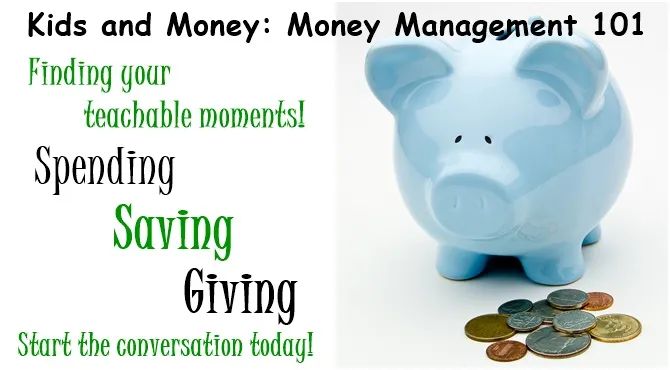
Kids and Money: Teaching Financial Responsibility
June 2015
Money management is one of the most important life skills parents can help to develop in their children. Starting off with good habits for spending, saving, and giving will provide your kids with a foundation for financial success that will serve them their whole lives. If you haven’t talked to your kids about money management, today’s the day to start!
Teachable Moments
- Start Early - The best time to start teaching the basics is during the preschool years. Show them how money is used to buy things and let them use bills and coins for counting. When they get older, take them shopping and show them how you compare prices and how to tell if something is on sale. Talk to your child about how you decide between something you want and something you need, and maybe have them help decide what your family needs from the store. When possible, include them in some of your smaller spending decisions.
- Beginning Budgeting - When children ask for things, it’s a good opportunity to discuss budgeting – in broad terms – and talk about saving. It’s okay to say, “We haven’t saved for that” or “It’s not in our budget” or “We can’t afford that right now.” Be careful, though, that you don’t create concern and be sure to end conversations with a reminder for your child that you will always have enough money to meet your family’s needs.
- Earning & Spending - Pre-teens will want to have their own money to spend, whether you give them an allowance or money for work around the house, it’s important to be sure they have the freedom to make their own decisions. Remind them that they can save for bigger items, but if they choose to spend their money on smaller things, allow them to experience the outcome of that as well. Remember, they’re learning with every transaction.
- Debt & Responsibility - As children reach the teen years and begin to expand their earning opportunities, it’s time to introduce them to debt and talk about responsible use of debt and credit cards. Help them determine when credit is a good idea – like for a home or car – and remind them that if they use a credit card they have to pay it off when the bill comes at the end of the billing cycle – or face expensive interest charges. You may even experiment with lending them small amounts for things they want, but don’t have the savings to buy.
Remember your children are watching you to learn about life, so model good spending, saving and giving habits and they’ll follow your lead.
Saving, Spending, Giving
One of the best money management lessons a child can learn is that they don’t get to spend all of what they receive. Parents should have their children set aside a portion to spend, a portion to save, and a portion to share. Help your kids decide on some savings goals and some sharing ideas. Then develop a way to break down their earnings.
Teach them that saving is for larger items and long term goals. Help your child set realistic, achievable goals. Pencil out a savings plan, and help them find saving solutions. If you want, offer to match what they save or pitch in a portion when they meet a major milestone. Remember, you don’t want them to think that budgeting is painful and saving requires a huge sacrifice.
- All kids, no matter their age, can benefit by opening a savings account and becoming familiar with deposits, withdrawals, and banking policies. It’s a good place to keep the portion they are required to save.
When it comes to sharing, give your child some freedom to explore ideas and choose one that fits for them. A Christmas toy drive, the offering plate at church, or local children’s charity are all good ideas, but be sure it’s your child’s decision. The more involved they are with the cause, the better they will feel about the donation.
Beyond Money Management
Money management is a basic life skill in itself, but it can also teach children other valuable skills as well. Kids will gain independence, learn to manage delayed gratification, develop critical skills for decision making, and learn to set goals and how achieve them.
Are you ready to talk to your kids about money? Start the conversation today!
Resources worth checking out:
- ThreeJars.com – Makes money management fun and easy for 5-13 year old kids and parents. Kids learn to manage "money" through saving, spending, and charitable giving jars - with guidance from Mom and Dad.
- MoneyAsYouGrow.org – A simple site developed by the President’s Advisory Council on Financial Capability that gives parents an idea what kids need to know at what age and offers ideas how they can structure meaningful lessons around 20 essential skills.




